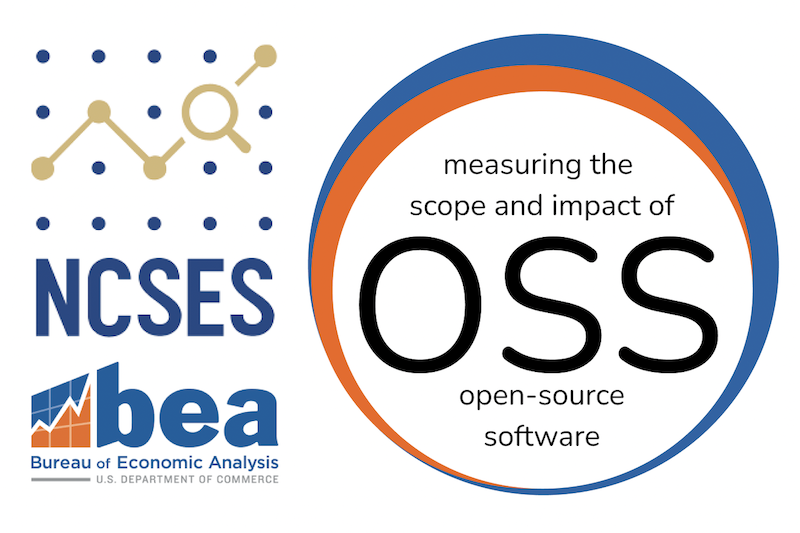Open-Source Software Research Team

Open Source Software (OSS), defined by Open Source Initiative, is computer software with its source code shared with a license in which the copyright holder provides the rights to study, change, and distribute the software to anyone and for any purpose. Prominent examples include the Linux operation system, the Apache web server, and machine learning frameworks like PyTorch and Tensorflow. OSS is developed, maintained, and extended both within and outside of the private sector, through the contribution of independent developers as well as people from universities, government research institutions, businesses, and nonprofits. Despite its ubiquity and extensive use, reliable measures of the scope and impact of OSS developed outside of the business sector are scarce.
More specifically, current economic indicators and indicators developed by the National Center for Science & Engineering Statistics (NCSES) does not comprehensively measure the value of goods and services that fall outside of market transactions. Although NCSES does track some types of software development, it is challenging to account for open-source software (OSS) outputs because these products are largely being advanced outside of traditional business contexts. Moreover, while current measures of innovation tend to rely on survey data, patent issues, trademarks approvals, intangible asset data, or estimates of total factor productivity growth, these measures are either incomplete or fail to capture innovation that is freely available to the public. Our team, comprised of researchers at the NCSES, the Bureau of Economic Analysis, and the University of Virginia, are interested in analyzing the scope and impact of open-source software by collecting large-scale data on this topic and developing software tools to analyze its growth over time. To date, our team has done work examining international collaborations, evaluating the estimated cost of open-source software on GitHub, and developing algorithms that help the NCSES classify GitHub users into different economic sectors. Read more about our past and ongoing projects on our papers and presentations pages.